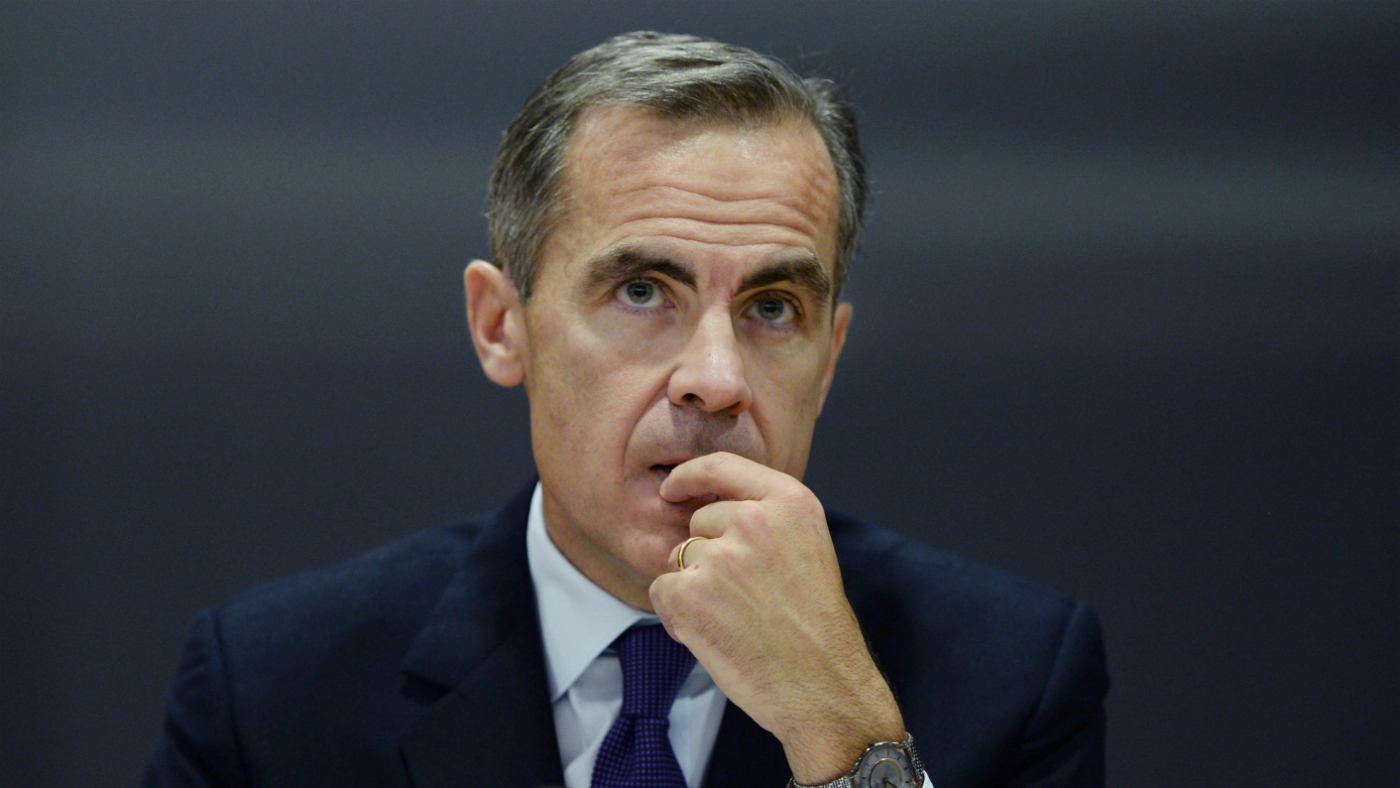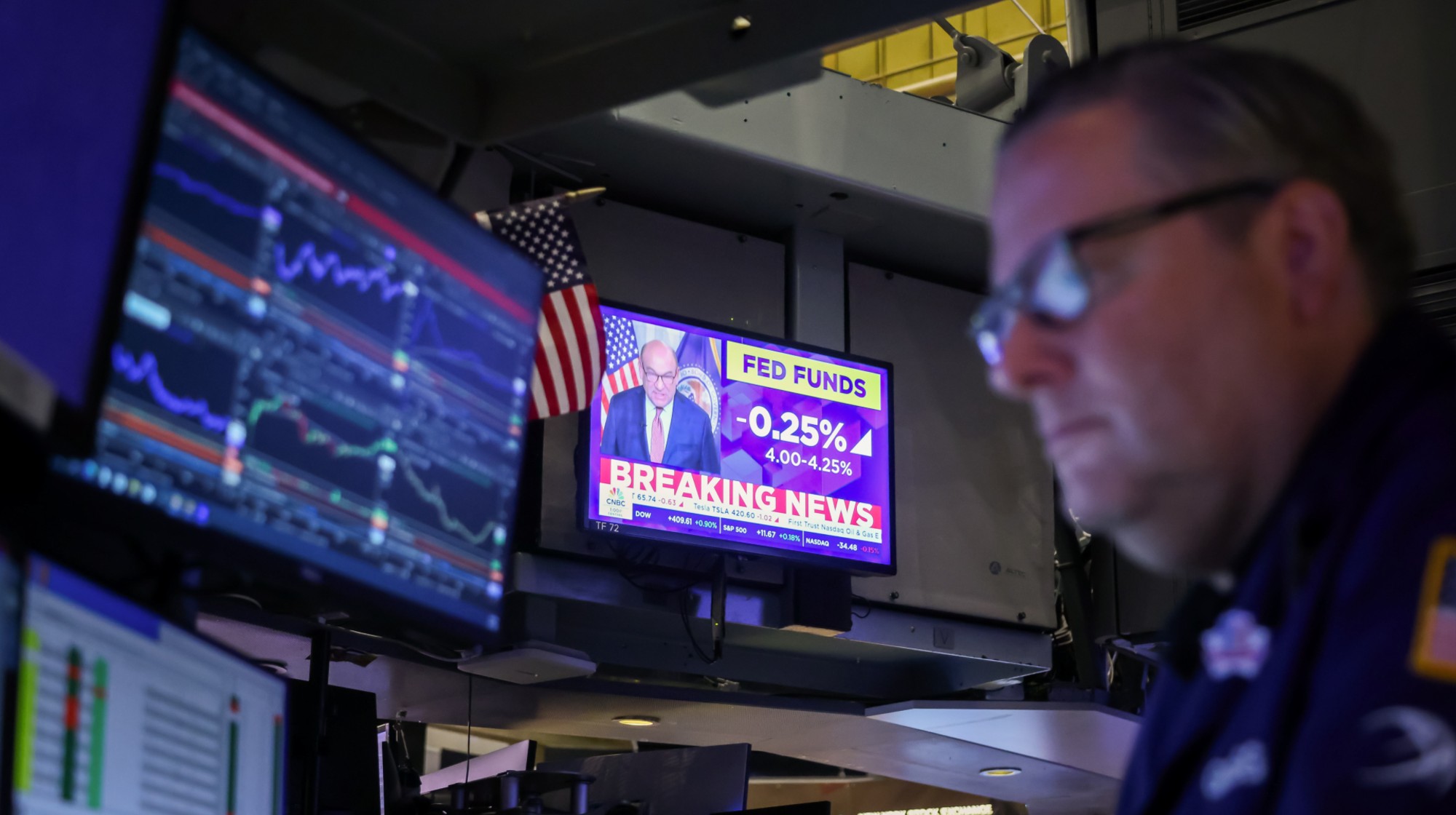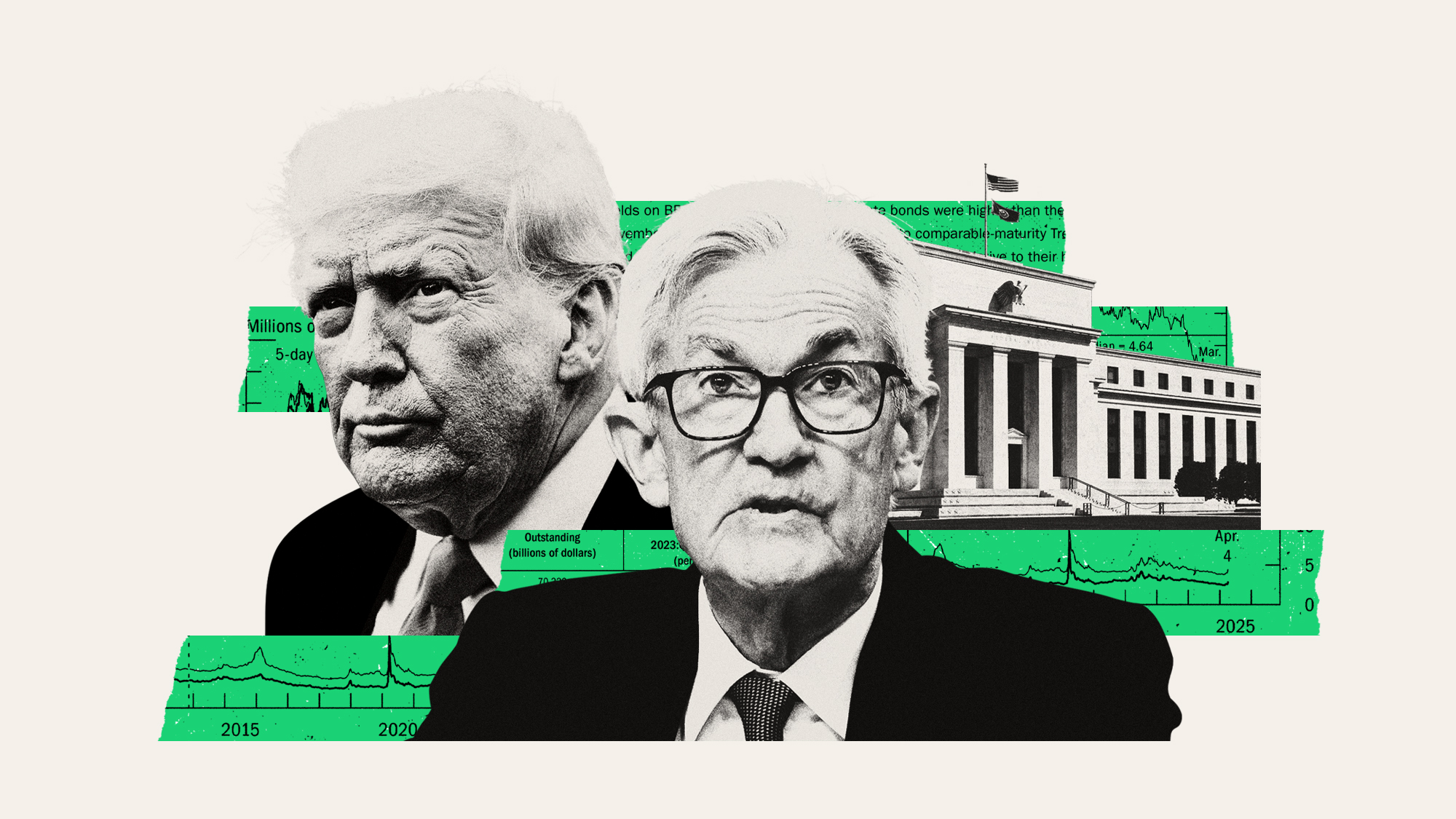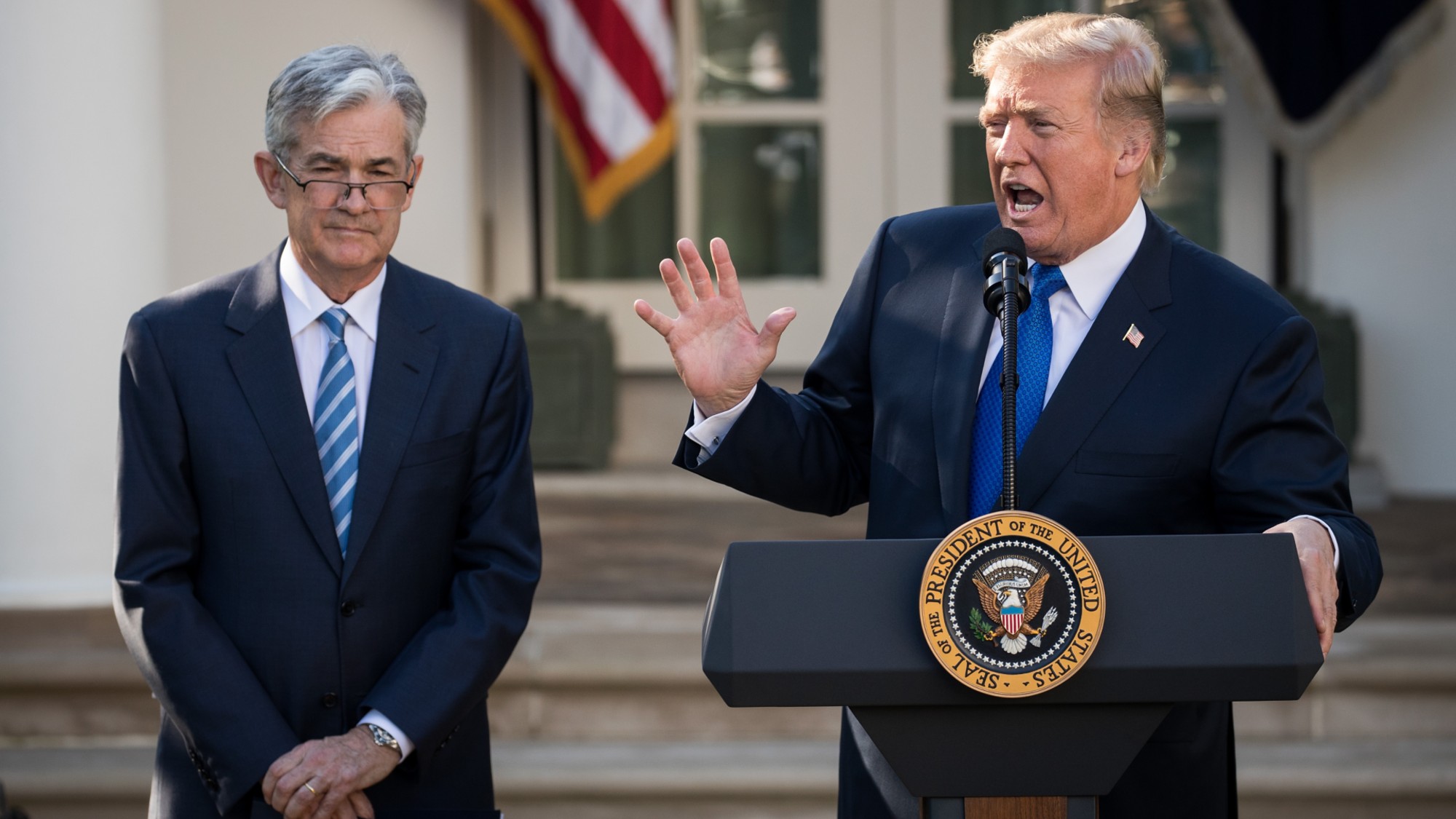Pound plunges after Bank of England's dovish rates signal
Central bank revises its growth forecast for UK economy

A free daily email with the biggest news stories of the day – and the best features from TheWeek.com
You are now subscribed
Your newsletter sign-up was successful
UK interest rates may be below average 'for decades'
19 January
UK interest rates are not likely to rise in the near future and could remain below historical averages "for years, even decades", according to the newest member of the Bank of England's rate setting Monetary Policy Committee.
Gertjan Vlieghe, who has used each of his five votes since joining the MPC in September to keep rates at their record low of 0.5 per cent, struck a markedly dovish tone at the London School of Economics, where he gave his first speech in the role, says the Financial Times.
The Week
Escape your echo chamber. Get the facts behind the news, plus analysis from multiple perspectives.

Sign up for The Week's Free Newsletters
From our morning news briefing to a weekly Good News Newsletter, get the best of The Week delivered directly to your inbox.
From our morning news briefing to a weekly Good News Newsletter, get the best of The Week delivered directly to your inbox.
Vlieghe cited "structural changes" in the economy in recent years, including higher levels of household debt, more uneven income distribution and an aging population, as having "altered the relationship between [economic] growth and interest rates". In short, "a given level of growth might be consistent with substantially lower interest rates than in the past".
This does not necessarily preclude rates being above where there are now. After all, interest rates in the UK have averaged 7.9 per cent since 1971, and were at five per cent before they began to be slashed in response to the global financial crisis of 2008 – an unthinkable level in the current climate.
But the "unambiguously cautious tone of his remarks will add to the City’s conviction that the UK is unlikely to follow the Federal Reserve in raising interest rates anytime soon", the FT argues. And Vlieghe did state unequivocally that he is "more patient" in waiting to start raising interest rates, partly because the MPC "may not have to raise rates very much once we start".
Adding to the overall tone, the Daily Telegraph notes that Vlieghe also said during the session that if UK rate setters had "been able to cut interest rates by several percentage points more" during the crisis – into negative territory, meaning depositors being charged to hoard cash – it might have stimulated spending more and shortened the downturn.
A free daily email with the biggest news stories of the day – and the best features from TheWeek.com
Vlieghe's comments came ahead of a speech by Bank of England governor Mark Carney, during which he delayed expectations of a rate rise. Market participants are currently betting on a rise no sooner than early 2017, while most economists are predicting a hike in autumn at the earliest.
Interest rates: market bets on no UK rise in 2016
15 January
Yesterday saw the publication of the decision and minutes from the latest Bank of England Monetary Policy Committee (MPC) meeting, but they gave little new insight into the thinking of the rate-setters.
As has been the case for several months, the panel voted by eight to one to keep rates at their record low of 0.5 per cent. Only Ian McCafferty, a noted policy "hawk" among the four MPC external members, called for a 0.25 per cent rise – and even that was in order to "facilitate a more gradual path for policy tightening over time", says the Financial Times.
Bank of England Governor Mark Carney had said the decision on when rates might rise would "come into sharper focus" about now, but certainly there was never any expectation they were actually going to be hiked this month. Reuters says the minutes offered little insight into the panel's thinking on timing, as it pointed to a critical speech by Carney next Tuesday.
The minutes did reveal that the Bank has lowered its forecasts for growth and inflation in the early part of 2016, however. Price rises had been expected to pick up this month as one-year comparisons finally fell into line with the first oil price nadir of $45 a barrel in January last year. But oil this month has fallen to $30 a barrel – and could head much lower.
The more negative data was enough for investors to increase standing bets that rates will rise later than had been expected, with the majority now seeing no increase until 2017 at the earliest. Most economists have also pushed back expectations for a hike, with almost none now repeating last autumn's predictions of it happening in the first half of this year.
"Given the weaker inflation outlook, we are shifting our outlook for the first Bank rate hike from the second quarter [to November]," David Page, senior economist at Axa Investment Managers, told the FT.
Daniel Vernazza of UniCredit also moved his forecast for the first rate rise back to November, saying "the likelihood of a rate hike in May has now fallen significantly".
Interest rates: rise chances fall after 'rubbish' manufacturing figures
13 January
The pound fell to its lowest level against the US dollar in five and a half years this morning, in the wake of data on the manufacturing sector that was described as "unambiguously rubbish".
Office for National Statistics data for November, the latest month available, revealed a 0.4 per cent fall in manufacturing activity amid a wider 0.7 per cent fall in industrial production. The Daily Telegraph says the drop was worse than had been forecast by any of the 30 economists polled by Reuters.
Michael Hewson, chief market analyst at CMC Markets, said the numbers were "unambiguously rubbish", while Ruth Miller, an economist at Capital Economics, said there had been "no change" in manufacturing's "dire performance". Zach Witton, from the manufacturers’ organisation EEF, said it was likely "that industry ended 2015 in the red".
The manufacturing slowdown will act as a drag on growth, which is already heavily dependent on the powerful services sector. Economic expansion has slowed relative to the brisk pace of much of the last few years, dampening speculation of an earlier interest rate rise by the Bank of England.
In response to the figures this morning, sterling was traded down 0.8 per cent against the dollar to the lowest level since summer 2010. This reflects increasing market expectations that rates will now stay on hold until the second half of the year.
This in itself could be good news for manufacturing. While it is being hit by a range of factors, including "weak global demand, intensifying competition… as well as growing uncertainty about the [global economic] outlook", one of the primary contributors to its slump has been a "historically strong exchange rate".
Interest rates: Osborne warns UK to be ready for rise
08 January
Homeowners must be ready for interest rates to rise, said Chancellor George Osborne yesterday as he warned of the need for an increase in borrowing costs to prevent what he termed "secular stagnation".
Speaking in Cardiff, the Chancellor also spoke of a "cocktail" of dangers facing the UK economy, saying that the way forward was to continue the move towards eliminating the budget deficit and to be ready for rates to normalise. Permanently low interest rates, high savings and weak business investment could hamper long-term growth, he said.
Emphasising that the timing of any rate rise is a matter for the Bank of England, Osborne said that homeowners in particular should be ready for an increase that would push up monthly mortgage costs. "High interest rates are a sign of a stronger economy," he said.
Research by TSB last year suggested homeowners were not prepared for their mortgage rate to increase. Around 20 per cent of those surveyed said they had "no idea" how a rise would affect them, despite costs being likely to go up for three-quarters of borrowers. More than 25 per cent said they would face difficulty if their costs rose by £100 or more a month.
However, according to separate research by estate agency Savills in December, a quarter-point rise in interest rates would add just £297 a year, or less than £25 a month, to average mortgage costs. This means rates could in theory rise up to four times before homeowners would face significant distress if their incomes did not rise while predictions are for just one or two rises this year.
Meanwhile, incomes are rising. The Bank of England also published a study in December that showed borrowers will be more able to cope with higher rates rises as wage increases have gathered momentum. The share of "vulnerable" households spending more than 40 per cent of gross income on their mortgage would not increase even if rates jumped from the current 0.5 to 2 per cent, the Telegraph notes.
Interest rates: manufacturing data deals blow to UK hopes
05 January
Another batch of data on the UK economy has painted an underwhelming picture on growth that could undermine the case for an earlier interest rates rise.
Markit's purchasing managers' index, published yesterday, reported that manufacturing activity fell to a reading of 51.9 in December. Any score above 50 indicates that surveyed firms have seen orders expand, but Bloomberg notes the score is still below the 52.5 for November, the lowest in three months and well short of consensus analyst expectations.
One positive was that export orders increased for the month, but prices slumped in the wake of another dip in the oil price and as a function of the strong pound.
Rob Dobson, senior economist at Markit, cautioned that pressures on firms are skewed "heavily on the downside" and that "industry will make at best, only a marginal positive contribution to broader economic growth in the final quarter".
The data comes after revised figures for third quarter growth last month, which reduced the rate down to a disappointing 0.4 per cent for the three months to September and to just 0.5 per cent for the third quarter. Predictions had been for the UK to generate growth of 0.6 per cent in the final three months, led by the powerhouse services sector, to give a final year total of 2.2 per cent.
With domestic growth slowing, global economic headwinds intensifying and the key measure of unit labour costs falling, reducing any upwards pressure on prices, the chances of a rates rise in the very near future are small. In fact, a sizeable majority of economists polled by the Financial Times stated that rates will rise only by a marginal 0.5 to 1 per cent over 2016 as a whole. The first rise could come as late as the second half of the year, they added.
Some had been anticipating the UK following the US with a first post-crisis rates rise in the first half of this year and perhaps as soon as February if growth continued to be steady and inflation bounced back once the oil slump falls out of the annual inflation calculation. Services growth and wages would need to bounce back now to make this a reality.
-
 6 of the world’s most accessible destinations
6 of the world’s most accessible destinationsThe Week Recommends Experience all of Berlin, Singapore and Sydney
-
 How the FCC’s ‘equal time’ rule works
How the FCC’s ‘equal time’ rule worksIn the Spotlight The law is at the heart of the Colbert-CBS conflict
-
 What is the endgame in the DHS shutdown?
What is the endgame in the DHS shutdown?Today’s Big Question Democrats want to rein in ICE’s immigration crackdown
-
 Powell: The Fed’s last hope?
Powell: The Fed’s last hope?Feature Federal Reserve Chairman Jerome Powell fights back against President Trump's claims
-
 The end for central bank independence?
The end for central bank independence?The Explainer Trump’s war on the US Federal Reserve comes at a moment of global weakening in central bank authority
-
 Who will be the next Fed chair?
Who will be the next Fed chair?Today's Big Question Kevin Hassett appears to be Trump’s pick
-
 Should Labour break manifesto pledge and raise taxes?
Should Labour break manifesto pledge and raise taxes?Today's Big Question There are ‘powerful’ fiscal arguments for an income tax rise but it could mean ‘game over’ for the government
-
 What are stablecoins, and why is the government so interested in them?
What are stablecoins, and why is the government so interested in them?The Explainer With the government backing calls for the regulation of certain cryptocurrencies, are stablecoins the future?
-
 Fed cuts interest rates a quarter point
Fed cuts interest rates a quarter pointSpeed Read ‘The cut suggests a broader shift toward concern about cracks forming in the job market’
-
 Trump's threats to fire Jerome Powell are unsettling the markets
Trump's threats to fire Jerome Powell are unsettling the marketsTalking Points Expect a 'period of volatility' if he follows through
-
 How will Wall Street react to the Trump-Powell showdown?
How will Wall Street react to the Trump-Powell showdown?Today's Big Question 'Market turmoil' seems likely